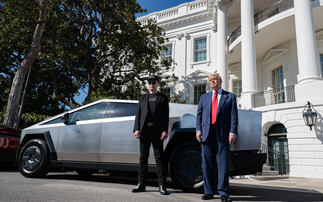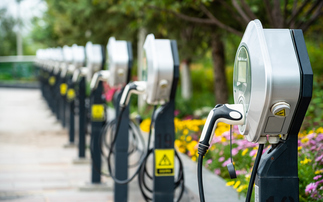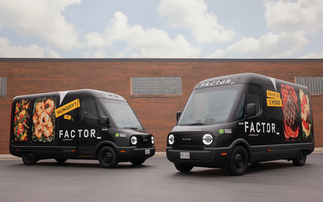US firm commits to slashing its vehicle use, supply base and building greenhouse gas emissions in line with the Paris Agreement by electrifying its fleet, embracing a circular business model and transitioning all its manufacturing plants to clean energy by 2035.
Ford has become the first maintream US carmaker to vow to achieve carbon neutrality by mid-century in line with the goals of the Paris Agreement.
The US automaker unveiled its new ambition yesterday in its annual sustainability report, explaining that it would be focusing on slashing emissions from the vehicle use, supply base, and company facilities that comprise 95 per cent of its carbon emissions.
Ford, which has been collaborating with the state of California to deliver stronger vehicle greenhouse gas standards, confirmed that in support of the new long-term net zero emissions target it would implement science-based targets for its Scope 1, Scope 2 and Scope 3 emissions, including interim targets.
Bob Holycross, vice president, chief sustainability environment and safety officer, said: "We can develop and make great vehicles, sustain and grow a strong business and protect our planet at the same time - in fact, those ideals complement each other. We don't have all the answers yet but are determined to work with all of our global and local partners and stakeholders to get there."
Customer acceptance, government regulations, economic conditions and the availability of renewable power and fuels are all challenges the carmaker said it intends to surmount on its path to carbon neutrality.
President Donald Trump, for one, has made gutting Obama-era clean car standards a cornerstone of his presidency, prompting California to set its own standards and join a number of other states in mounting a legal challenge against the federal rollbacks, which they assert will turbocharge the release of dangerous pollutants that threaten human and ecological health.
The president's deregulatory agenda has caused a schism among car companies, with Ford, Honda, BMW, and Volkswagen committing last year to year-on-year fuel economy gains that eclipse the weaker standards proposed by the federal administration. Other firms, however, have backed the President's plan to revoke California's right to set its own cleaner emissions standards, effectively backing the dilution of the Obama-era standards.
But regardless of the federal policy void when it comes to decarbonising the automotive sector, Ford confirmed in its sustainability strategy that electrification will play a major role in its business activity over the years to come. The firm said it will invest more than $11.5bn in electric vehicles (EVs) before 2022 and confirmed it is already working on producing low-emissions versions of its most popular models. An all-electric SUV, the Mustang Mach-E, will arrive at dealerships this year while two more all-electric models, the Transit Commercial and F-150, are set to hit the market within the next two years, the company said.
It added that its EV charging network, the FordPass Charging Network, is now established as North America's largest charging network, comprising more than 13,500 charging stations and almost 40,000 individual charge plugs.
And when it comes to reducing the emissions of its buildings and operations, Ford said it was on track to meet a previous target of using 100 per cent locally-sourced renewable energy at all plants by 2035.
The firm also confirmed today that supporting a circular economy was front and centre to its plans, noting that its research teams have been redirecting waste streams into biomaterials for vehicle parts for years.
Environmental groups praised Ford's new strategy, hailing it as a template for the rest of the industry to follow.
Mindy Lubber, chief executive and president of the investor-backed sustainability non-profit organisation Ceres, urged other companies in the automotive sector to set similarly ambitious goals. "We congratulate Ford on its commitment to be carbon neutral by 2050," she said. "Ford recognises the urgency to address climate change, and we urge every company to take action and commit to science-based targets within their global enterprises."
Her comments were echoed by Environmental Defense Fund president Fred Krupp, who said Ford was building on its record as an industry leader with its goal to become carbon neutral by 2050.
"If policymakers and other automakers follow Ford's lead in working with California, making substantial near-term investments in zero emitting technologies, and committing to a zero-emission future, we can shift the needle on climate change while creating much-needed jobs across our country," he said. "Ford's action also importantly recognises that we must rapidly electrify the automotive sector to enable all Americans to breathe cleaner, healthier air."
The Net Zero Leadership Hub is brought to you in partnership with BT, as part of its support for the Net Zero Leadership Stream at the world's first Net Zero Festival this autumn. All the content on the Hub is fully editorially independent unless otherwise stated.
You can find out more about the Net Zero Festival and reserve your place here.










